Ellwein Farm Family
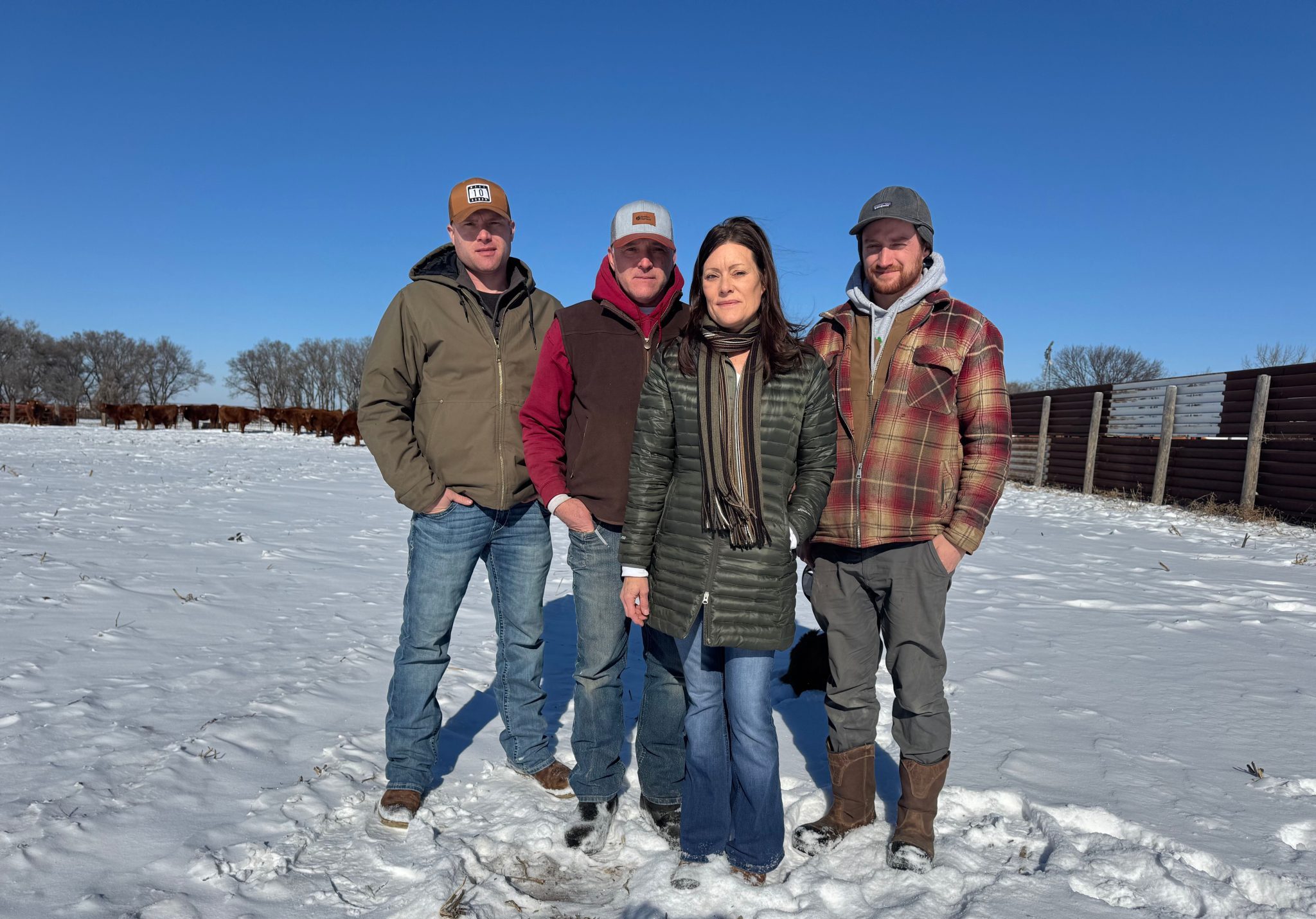
South Dakota Farmers Union Celebrates Brown County Farm Family
By Lura Roti for South Dakota Farmers Union
It was so dry the first growing season after Todd and Melissa Ellwein purchased their farm three miles west of Barnard that almost nothing grew.
“Dirt was blowing in the ditches in March,” Todd recalled. “Our well went bad and was pumping sand and we were not on the rural water system yet.”
In the fall of 1988 the newlyweds had few crops to sell. Melissa worked in Aberdeen at the time and Todd worked on his dad’s farm and hog operation. Somehow, they were able to pay the high-interest mortgage on the farmstead and 80 acres.
Even though it was tough, the couple was determined to make a go of it farming.
“Ellweins have always been farmers through the generations as long as I know about,” Todd said. “They started in Germany and then went to Russia, then to South Dakota and homesteaded. So, farming is something that is in our family line and our blood. And I’m hopeful that my children and grandchildren can continue that tradition.”
Where there’s a will, there’s a way.
Todd and Melissa both grew up on Brown County farms.
Melissa’s parents, Berwyn “Barney” and Sharon Bain, raised cattle. So, she and her sister grew up helping with calving, fixing fence and haying.
“We were the hired help. In fact, Dad did not have any full-time hired men until we left home,” Melissa said with a smile.
Todd’s parents, Dennis and Joan Ellwein, started farming on a quarter of ground in the ’70s. They had some crop acres and pigs they raised in old outbuildings they converted to confinement barns. For the first few years on the farm, Dennis and Joan’s primary income came from their careers as a nurse and police officer.
Todd and Melissa both went to high school in Frederick, so even though they are a few years apart, they have always known each other. They started dating in 1986 and got married in 1987, around the same time the small farm five miles from Todd’s family farm came up for sale.
Todd and Melissa’s family farm has come a long way since 1988.
“You can do anything you want to do in life – and in agriculture too. Even though people may is a way,” Todd said.
The rain finally came. And so did the rural water system.
In 1989, they welcomed their daughter, Carli, then in 1990 son, Carson, and a few years later, daughter, Chandler. As their family expanded, so did their crop and pasture acres.
Today, Todd and Melissa together with their son, Carson, and son-in-law, Casey Cox, raise crops and cattle.
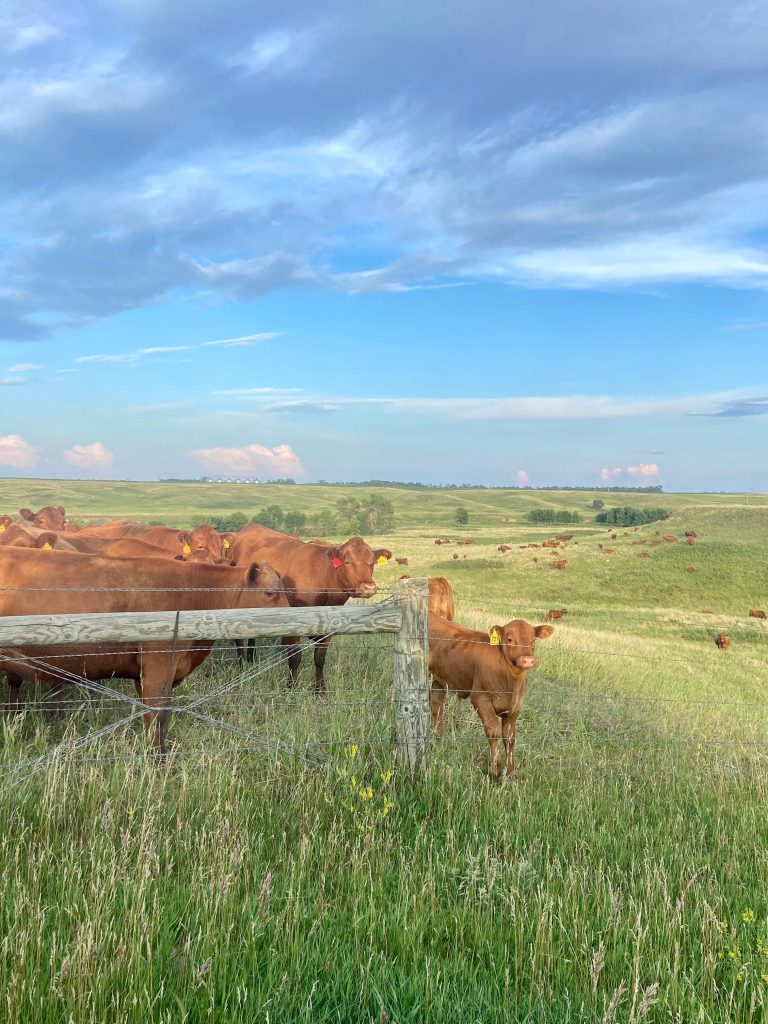
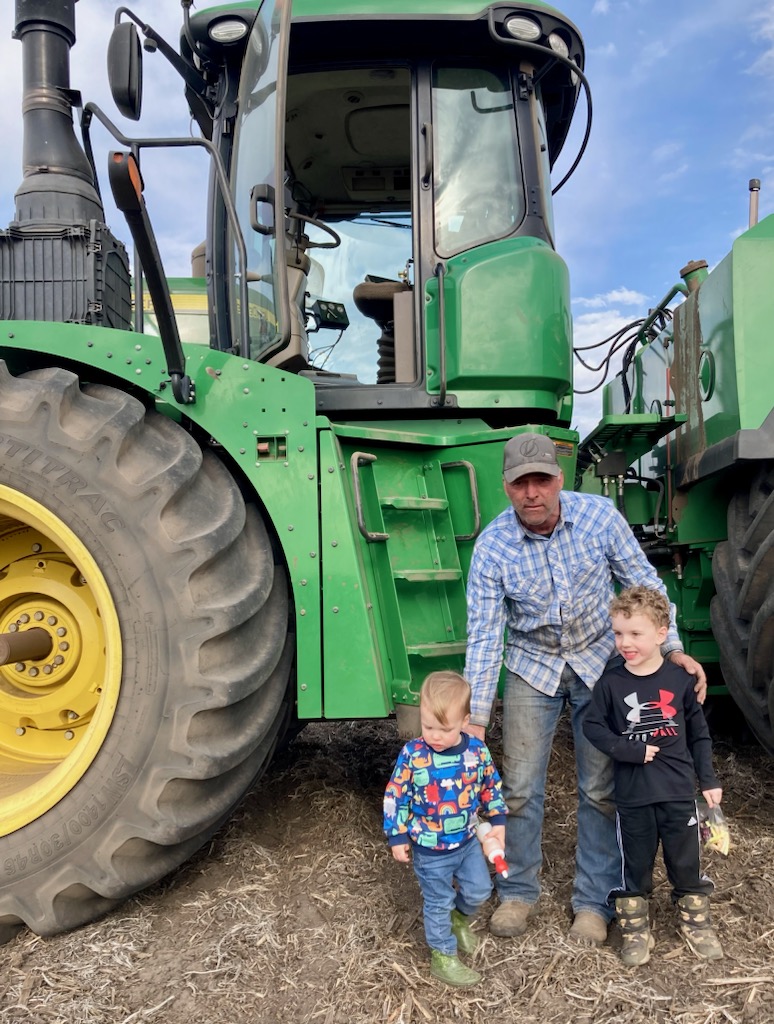
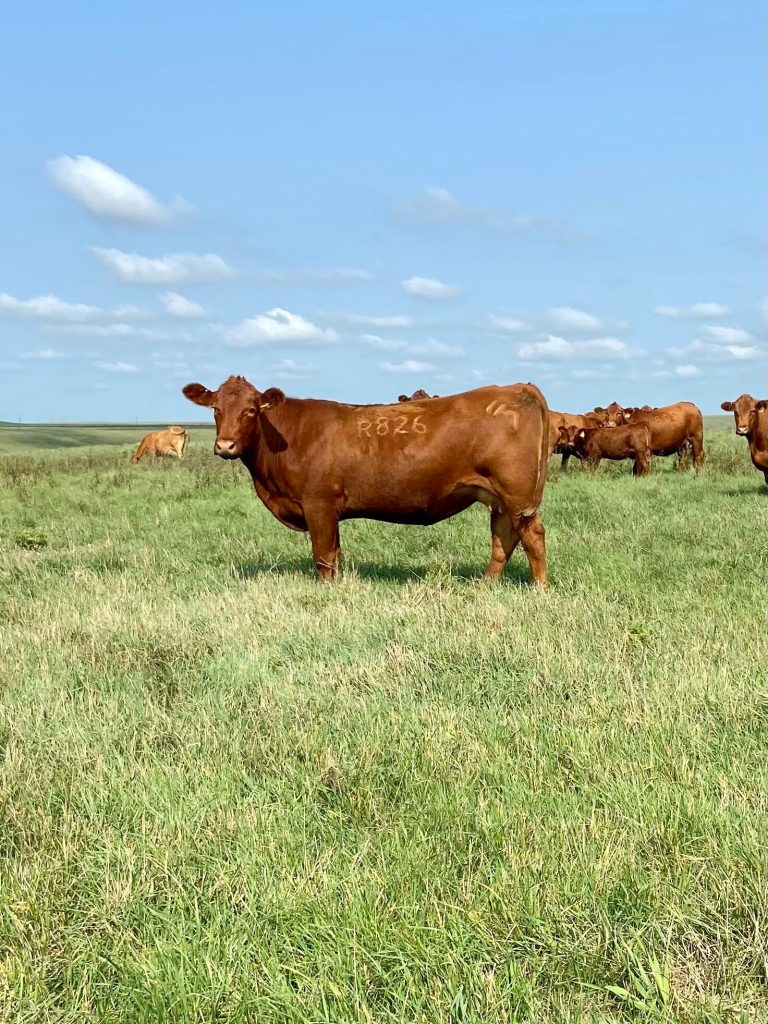
“I always wanted to farm,” Carson said. “I went to SDSU after high school, but I didn’t graduate. 2009 was a real wet year and harvest seemed to go on forever. When I was not in class, I was coming home to help with harvest. At the end of the semester, I decided I did not want to go back.”
His family supported his decision. Grandma Sharon and Grandpa Barney had been donating to the college fund, so instead of helping with tuition, they gifted Carson some bred heifers.
“Young people staying in the cattle business is rare and my dad wanted to see this carry on because cattle are his passion,” Melissa explained.
Carson continued to build his cattle numbers, saving all his heifer calves and breeding them. About five years ago, the family purchased the last of Barney’s herd. Along with exceptional genetics, the cows were bred to calve a couple months later than the Ellweins’ original herd. Moving forward they decided they liked the later time frame and synced everyone to calve in late April, early May.
“We used to calve in March in the barn. As the herd grew it became labor intensive. Overall, late calving has reduced our labor, and we have healthier calves because we are not fighting Mother Nature,” Carson explained.
“And the calves end up weighing about the same at weaning time because they didn’t have any health setbacks and they were able to be out on grass right away,” Todd said.
“With late calving, they live a stress-free life,” Carson added.
Late spring calving also allows Carson to implement the Sandhills Calving System – instead of calving indoors the cows begin calving season in one pasture. Every two weeks all the bred cows are moved to a new pasture, leaving the newborn calves and their mothers behind.
“This eliminates cross contamination between newborn calves and calves that are 3-4 weeks old,” Carson explained.
He added that since the family also implements an intense rotational/mob grazing system throughout the growing season, by fall the calving pastures have plenty of regrowth so there is natural bedding for the cows and newborn calves.
While Carson and Melissa are focused on calving, Casey, Todd and employee, Gabe Vallejo, turn their attention to planting. Mike Enze, their seasonal helper, keeps the trucks rolling, hauling grain from the bins to town.
Although Casey did not grow up on a farm, he did spend summers on his grandparents’ Michigan farm. He met Chandler Ellwein through mutual friends. “I went to SDSU and met a kid from Frederick who talked me into joining the Marine Corps,” Cox explained.
It was through his Marine Corps friend that he met Chandler. The couple married in 2019.
After his enlistment was up with the Marine Corps, Todd offered Cox a summer job haying. “My plan was to return to college that fall. But when fall came, I asked Todd if working on the farm could be full time,” Cox said.
That was 2021 and Cox said he enjoys his farming career. In fact, he invited his Marine buddy Gabe Vallejo to work with him on the farm. “I really like being hands-on with my work and doing things that have an outcome you can see. It is satisfying to see a new corral I helped build or a tractor work after I spent time working on it.”
And there’s the family aspect. He and Chandler have three young children, Camrin, Carter and Callahan.
“It’s nice to be a part of a family farm. If my kids need daycare, Melissa is our daycare. Or they ride in the tractor with me or Todd,” Cox explained. “It is nice to be part of such a tight-knit family. My daughter’s best friend is Carson’s daughter.”
Carson and his wife, Brittany, have two children, Evelyn and Eli. And his sister, Carli and her husband, Brett Flemmer, have three children, Rudy, Barney and Fitz.
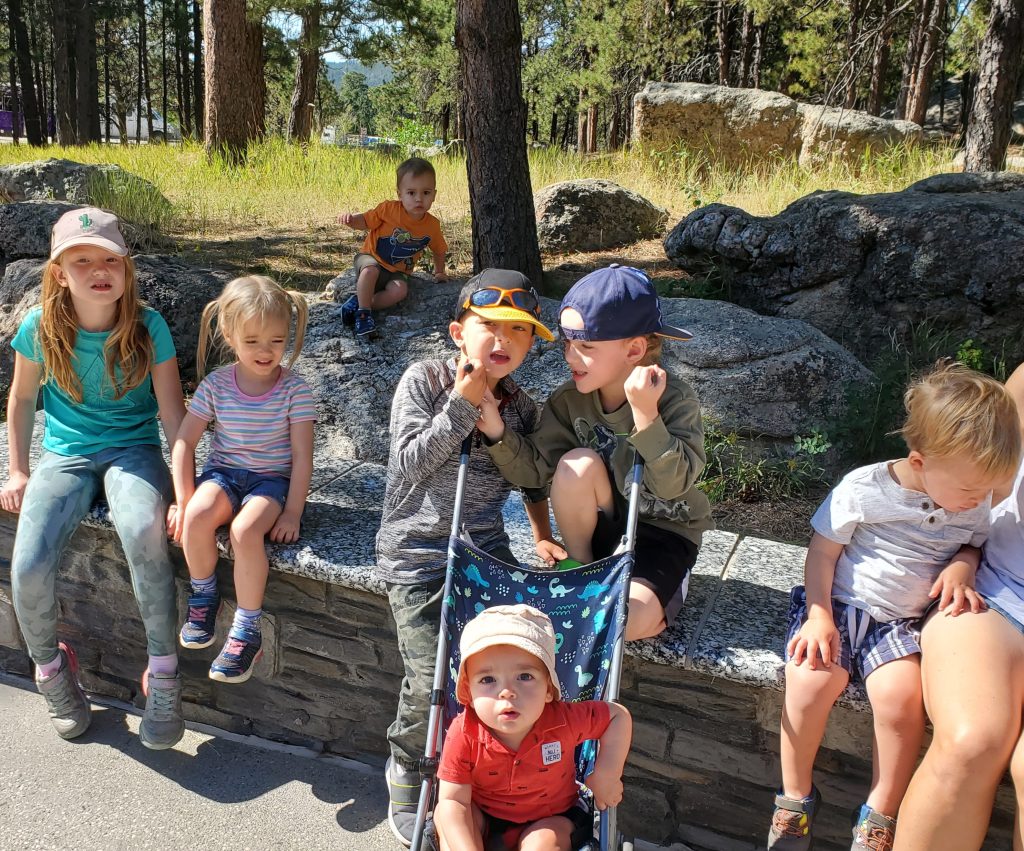
“We feel blessed, all three of our children live within 10 miles of our farm,” Melissa said. “Working on the farm you know you are working for yourself and for the good of your family. Hard sometimes, because you are so dependent on the weather and there is a lot of responsibility, but good.”
Melissa and Todd are grateful their grandchildren are able to enjoy the same benefits as their children that come from being raised on a family farm. “The best place to grow up is on the farm,” Todd said. “Children gain experience and life skills.”
“And they learn to have faith that things will work out,” added Melissa.

